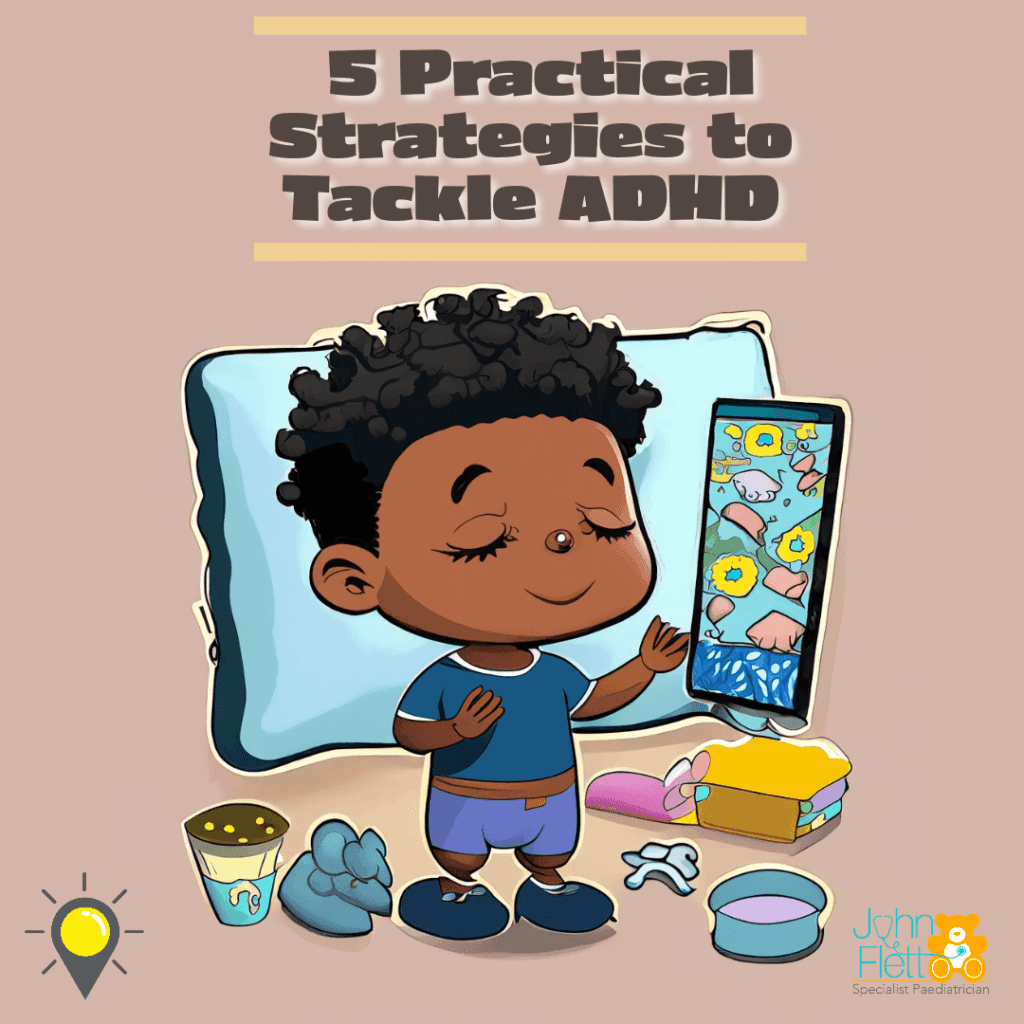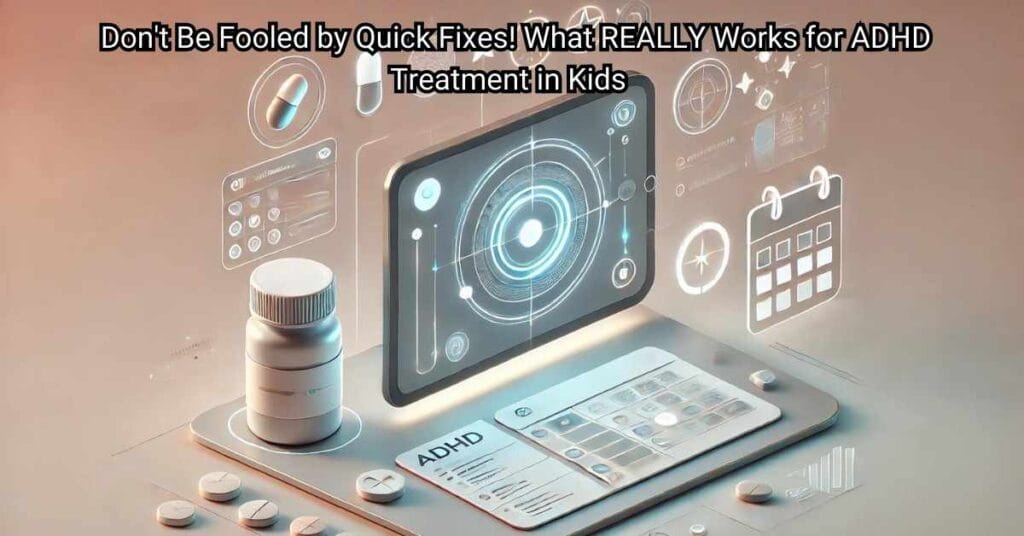Practical Strategies to Manage ADHD.

An Informative Guide for Parents, Teachers and Patients
Navigating the world of ADHD as a parent can indeed be challenging. However, understanding the impact of certain everyday habits can help manage your child’s symptoms more effectively. This detailed guide presents five crucial areas you might need to address:
- Managing Sugar Intake: “Sugar, sugar, by increasing your sugar temporarily and give you an immediate mental fix of energy but disappears fast leaving your brain really low in the gutter begging for more sugar like a junkie…even moderate amounts of sugar in your diet can make your ADHD worse.” Consuming high quantities of sugar can induce an immediate burst of energy, but this fleeting surge soon dissipates, leaving your child’s brain in a low-energy state, craving more sugar. This cycle can potentially exacerbate ADHD symptoms.
- Practical Tips: Lower sugar intake by substituting it with healthier alternatives. Be aware of hidden sugars in ‘health’ drinks and juices. Choose complex carbohydrates found in ‘brown’ foods like brown rice and whole grains over simple carbs from ‘white foods’. Make a conscious choice to avoid processed foods with artificial ingredients and dyes.
- Controlling Worrying: A sage once remarked, “Worry does not empty tomorrow of its sorrow; it empties today of its strengths.” Constant worrying can indeed exhaust mental energy, which could be more detrimental than physical fatigue. When your child is focused on negatives, their creativity and problem-solving abilities are hindered.
- Practical Tips: Help your child gain control over their inner dialogue by teaching them to recognise unproductive thoughts about the past, the future, or petty judgments. Encourage them to label these thoughts as distractions and focus on using their mental resources more productively.
- Reducing Multitasking: “Research shows even non-ADDers can’t perform multiple tasks as well as one alone.” Multitasking can lead to inefficiencies and increase ADHD symptoms. Children with ADHD can find it more beneficial to focus on one thing at a time.
- Practical Tips: Help your child label their current task as “What I’m doing now”. Encourage them to recognise and label distractions as unimportant. If something important but non-urgent arises, teach them to make a note to handle it later.
- Ensuring Quality Sleep: “Poor sleep – not enough, or low quality – is alarmingly common among ADDers.” Insufficient or poor-quality sleep can intensify ADHD symptoms. As the CDC calls insufficient sleep “a public health epidemic”, it’s especially crucial for children with ADHD to practice good sleep hygiene.
- Practical Tips: Restrict screen time at least an hour before bed, and avoid sugar or caffeine intake after late afternoon. You might also consider introducing natural sleep aids, such as unsweetened cherry juice. A protein snack like cottage cheese a few hours before bed could also be beneficial.
- Limiting Screen Time: “Screensucking” is the term coined by Dr. Ed Hallowell to describe the excessive amount of time spent in front of electronic screens, which can exacerbate ADHD symptoms. It steals precious time, disrupts healthy sleep, and diverts attention from more important activities.
- Practical Tips: Help your child become aware of their media habits and identify one activity they can reduce or eliminate. Encourage them to replace it with a more productive or enriching activity.
Remember, the goal is to feed the brain, reduce worry, encourage focused tasking, improve sleep, and take charge of media life. Implementing these changes can help in making your child’s ADHD symptoms more manageable and improving their quality of life. However, it’s important to note that every child is unique, and the effectiveness of these strategies may vary. Patience and consistent effort are key in this journey.


